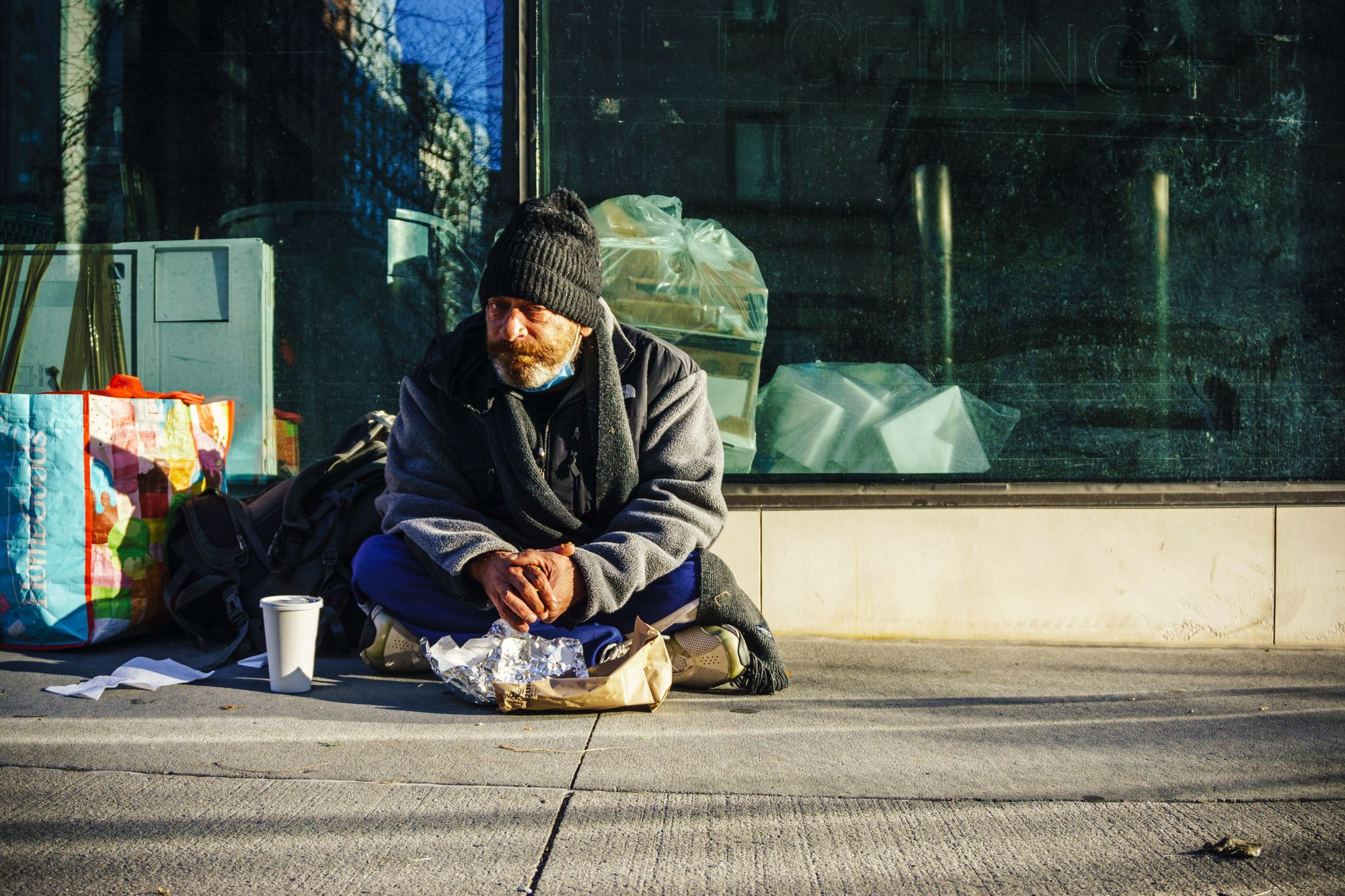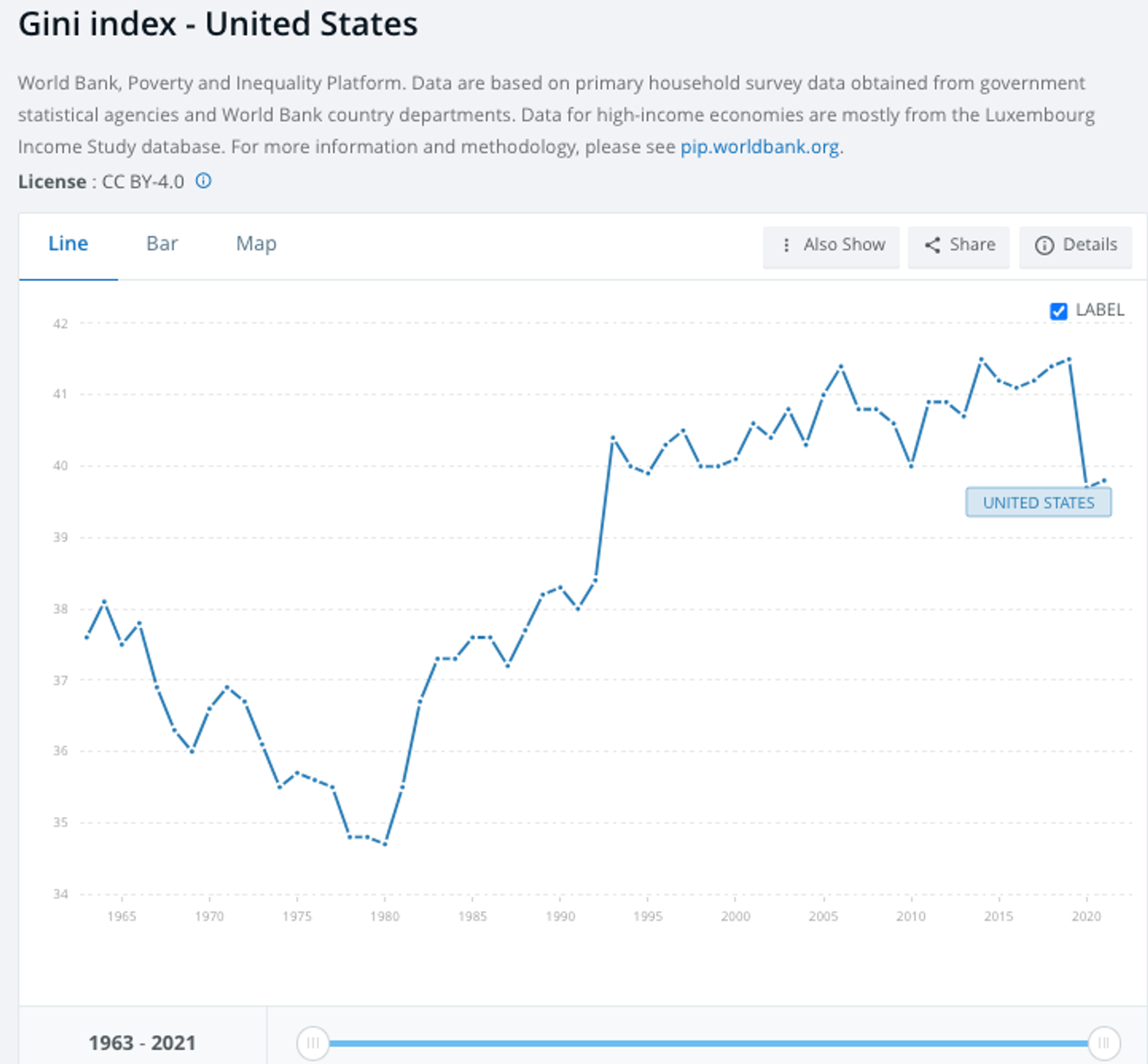Inequality, the silent engine of the disinformation-driven polarisation
date
Feb 14, 2024
slug
2024-inequality-the-silent-engine-of-the-disinformation-driven-polarisation
status
Published
tags
inequality
disinformation
polarisation
social media
economic decline
type
Post
ogImage
summary
The raging disinformation that creates a battleground around the world would be irrelevant if the economic gains brought by productivity didn’t foment inequality so much.

In an age where the digital ether is saturated with narratives that sway, distort, and at times, blatantly misinform, the question of what fuels this fire of disinformation is more pertinent than ever. While the spotlight often falls on technology as both the culprit and the battleground, the root of this pervasive issue runs much deeper, entwined with the very fabric of societal structure: inequality. A study by Alexander J. Stewart, Nolan McCarty, and Joanna J. Bryson, published in Science Advances, sheds light on this phenomenon, arguing that economic hardship and rising wealth inequality are the bedrocks upon which social and political polarization—and consequently, the spread of disinformation—rest.
The research highlights how individuals, in the face of economic decline or increasing inequality, gravitate towards risk-averse strategies, inclining towards interactions within their in-group. This behavior fosters a fertile ground for polarization, as groups become echo chambers, amplifying their own views while excluding others. The rise of technology has merely provided a megaphone for these divisions, enabling the rapid dissemination of information—and misinformation—across global networks. Thus, while tech companies often bear the brunt of the blame for the spread of disinformation, they are but conduits for deeper societal fractures.
Over the last decade, the global economy has witnessed periods of significant growth, with the World Bank reporting a 2.4% increase in global GDP in 2019, compared to the previous year. However, this economic expansion has not been evenly distributed among populations, leading to rising levels of inequality. According to the World Inequality Report 2022, the top 1% of earners worldwide captured 38% of the wealth created since 1990, while the bottom 50% only gained 2%. This disparity is further illustrated by data from the United States, where, despite the GDP growing by approximately 2.3% in 2019, the Gini coefficient—a measure of income inequality—increased to 0.485 in the same year, as reported by the U.S. Census Bureau. These figures underscore a troubling trend: while the economy grows, the benefits are disproportionately accrued by the wealthiest, exacerbating inequality levels across the globe.

The World Bank's data on inequality in the US, which reached a peak in 2019 before a brief respite due to pandemic countermeasures, suggests a troubling resurgence. This data echoes the study's findings, illustrating how longstanding inequalities have not only persisted but have been exacerbated in the digital era. The implications are profound, as the fabric of societal cohesion is eroded by the divisive currents of disinformation, fueled by underlying economic disparities. A practical example: New York, the home city for the largest number of millionaires in the world (340,000), also hosts more than 60,000 homeless people, including women and children, according to data from the Coalition for the Homeless, an advocacy and direct service organization.
The model developed by Stewart, McCarty, and Bryson, based on cultural evolution and evolutionary game theory, elucidates the dynamics at play. It reveals how polarization, once established, becomes entrenched, difficult to reverse, and acts as a social dilemma where individual and collective benefits diverge. This entrenchment of polarization underscores the challenge of bridging divides in a landscape marred by economic inequalities.
Further examination of empirical data from the United States underscores the correlation between rising inequality and affective polarization—a measure of the mutual dislike between members of different political parties. This correlation points to economic decline and inequality as catalysts for behavioral changes that lead to polarization, offering insights into the support for populist and far-right movements globally.
The study's conclusion is a clarion call to address the economic conditions fostering polarization to prevent the exacerbation of societal divides. However, as technology continues to evolve, the mechanisms for spreading disinformation become more sophisticated, making the task of countering it increasingly complex. The concept of "armored information," as proposed in the paper "Armored Information as a Promising Concept to Reduce Disinformation," offers a potential mitigator by fostering cooperation among social organizations, citizens, and political actors. Yet, the effectiveness of such measures remains to be seen in the face of deep-rooted inequality.
In the digital public square, where the cost of entry is negligible, the incentives for individuals to engage aggressively and deepen differences with antagonistic groups are high. Disinformation not only produces dangerous false narratives but also fragments reality, allowing individuals to retreat into echo chambers that reinforce their worldview. This fragmentation of reality is a symptom of the underlying malaise of inequality, suggesting that the battle against disinformation cannot be won without addressing its root cause.
The intertwined nature of disinformation, polarization, and inequality presents a daunting challenge. As the digital landscape becomes increasingly weaponized in the service of misinformation, the need for a concerted effort to address the underlying economic disparities has never been more urgent. The path forward requires not just technological solutions but a comprehensive approach that addresses the economic, social, and political determinants of inequality. Only then can we hope to stem the tide of disinformation and heal the divisions that threaten the very fabric of our societies.